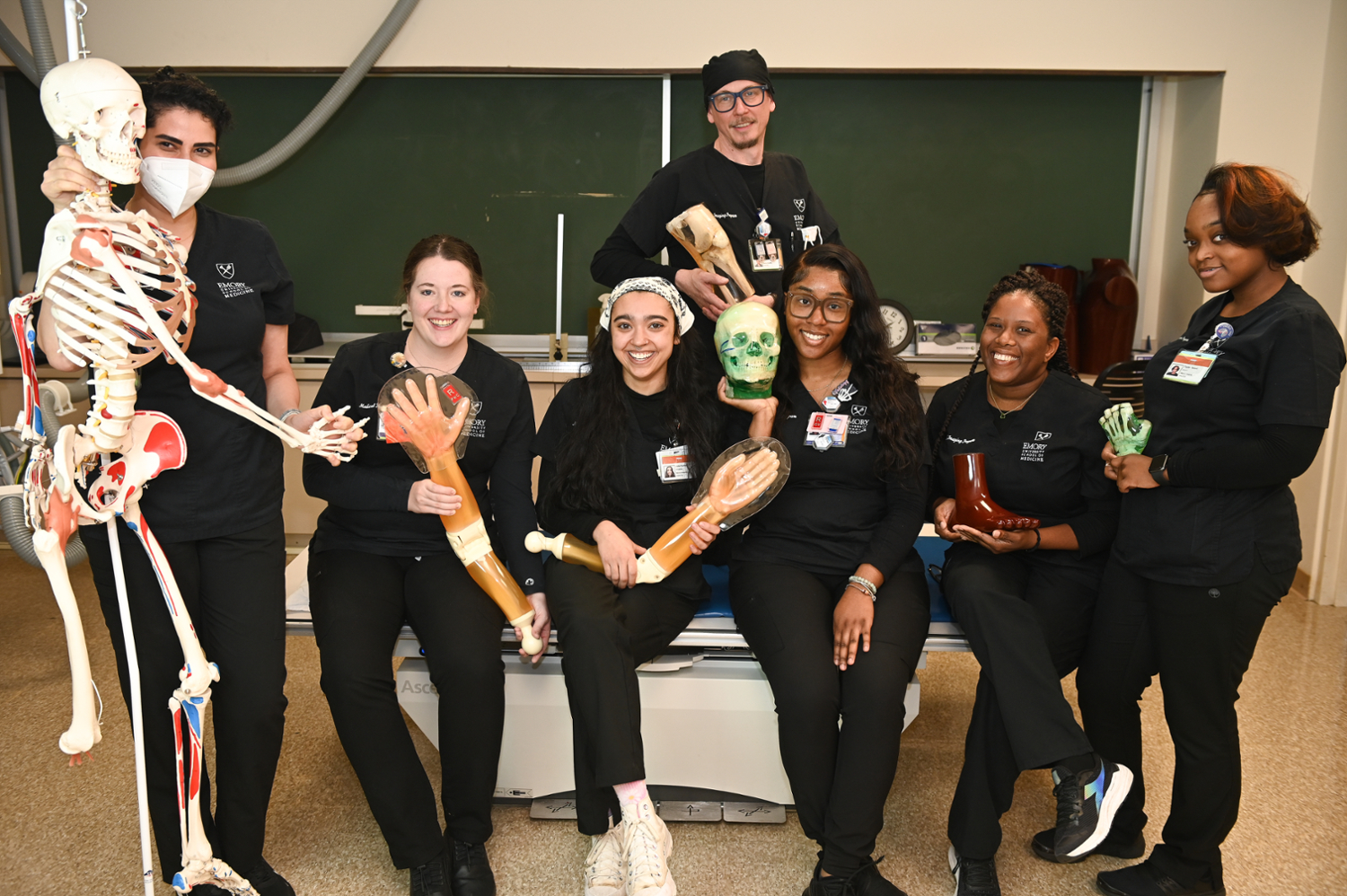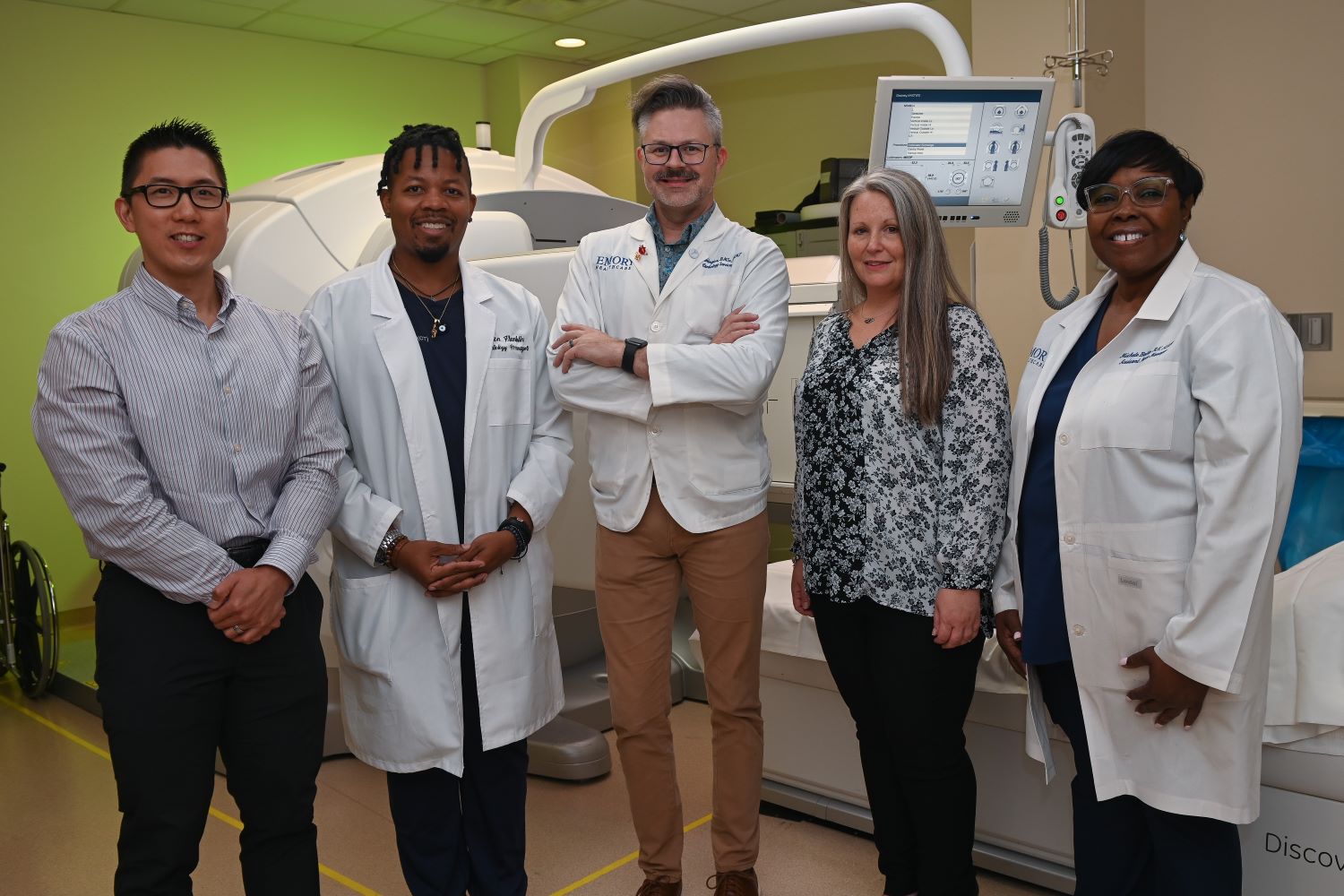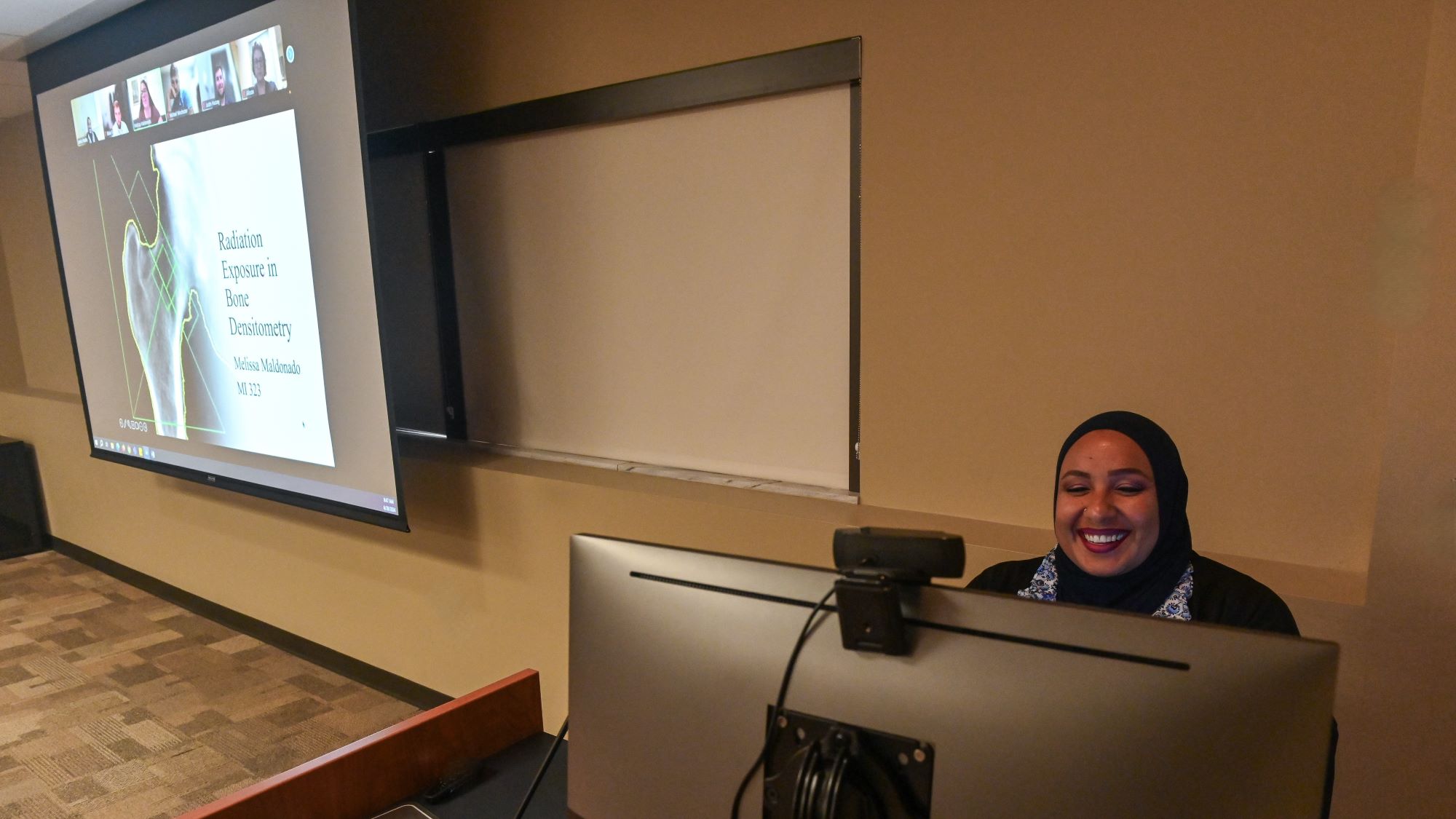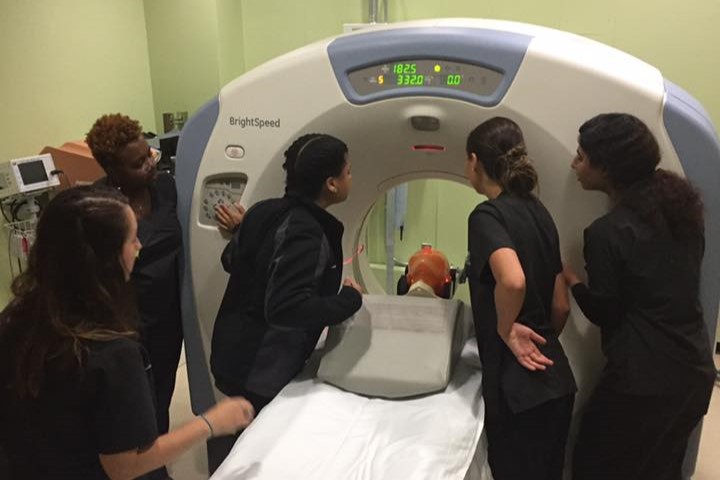Congratulations to the Class of 2025!
The Class of 2025 received their diplomas on Monday, May 12, 2025. We celebrate their hard work and wish them all the best on the next chapter of their journey!
From left to right, front row: Michael Winchester, RT(R), instructor Lamiis Khalifa, instructor Ajeenah Bullock, Guadalupe Godoy-Morfin, Raven Richardson, Shokoufeh Rabbani; second row: LaToya Gotel RT(R), Instructors Jacki Harmon and Ted Brzinski, Amanda Torsel, Leslie Moore; third row: Justin Hussey RT(R), Melissa Maldonado RT(R), William Mayes RT(R)(CT), instructor Sean Strickler, Blake Robertson RT(R), and program director Kim Cross
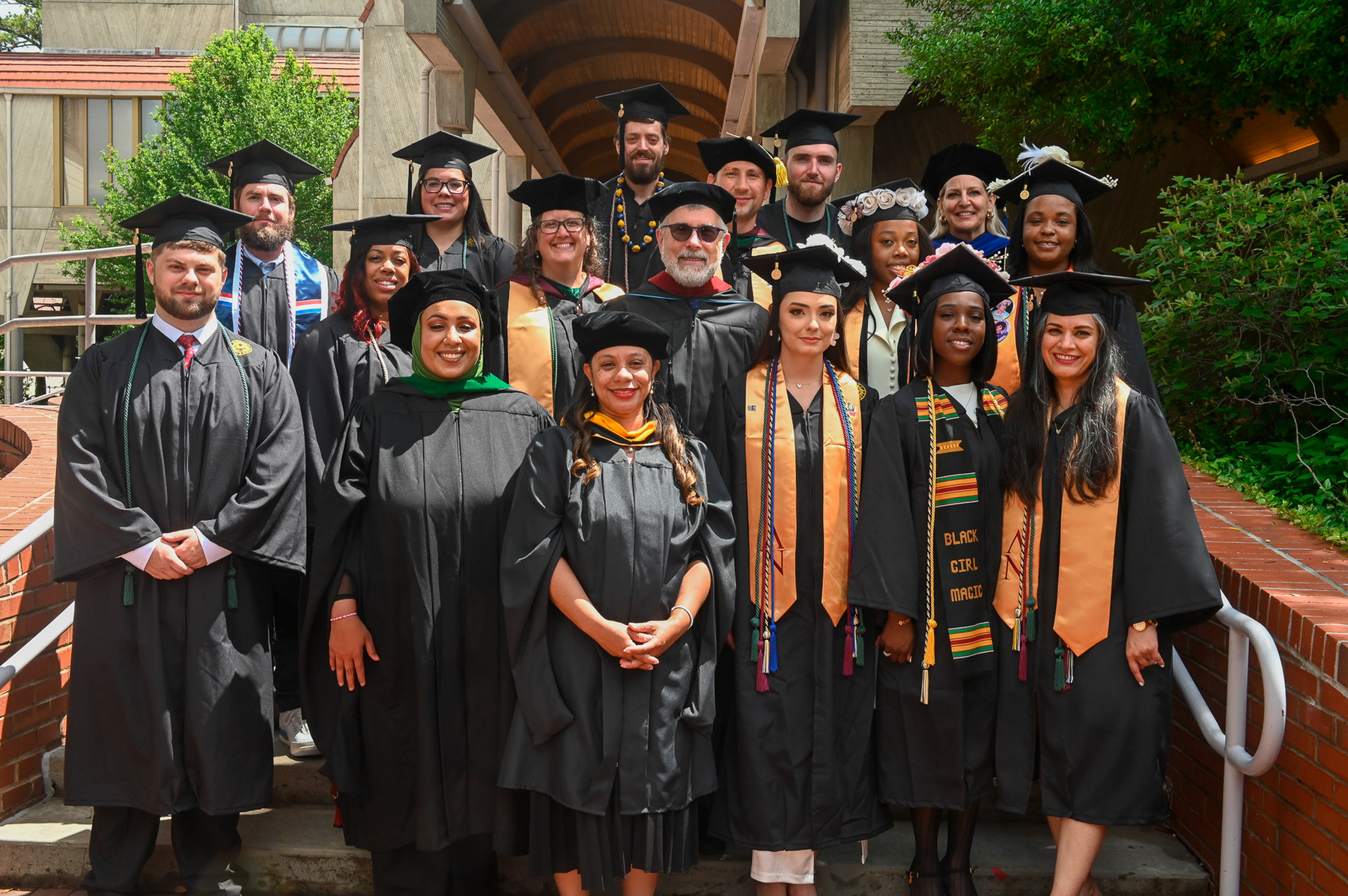
This Could Change Your Life
Nicole Wilburn chose to specialize in magnetic resonance imaging and graduated in May 2024. Click the video to hear how the RT to BMSc Program for medical imaging technologists helped take her career to the next level.
The Next Step in Your Career Journey Starts Here
Medical Imaging Program Best in Class
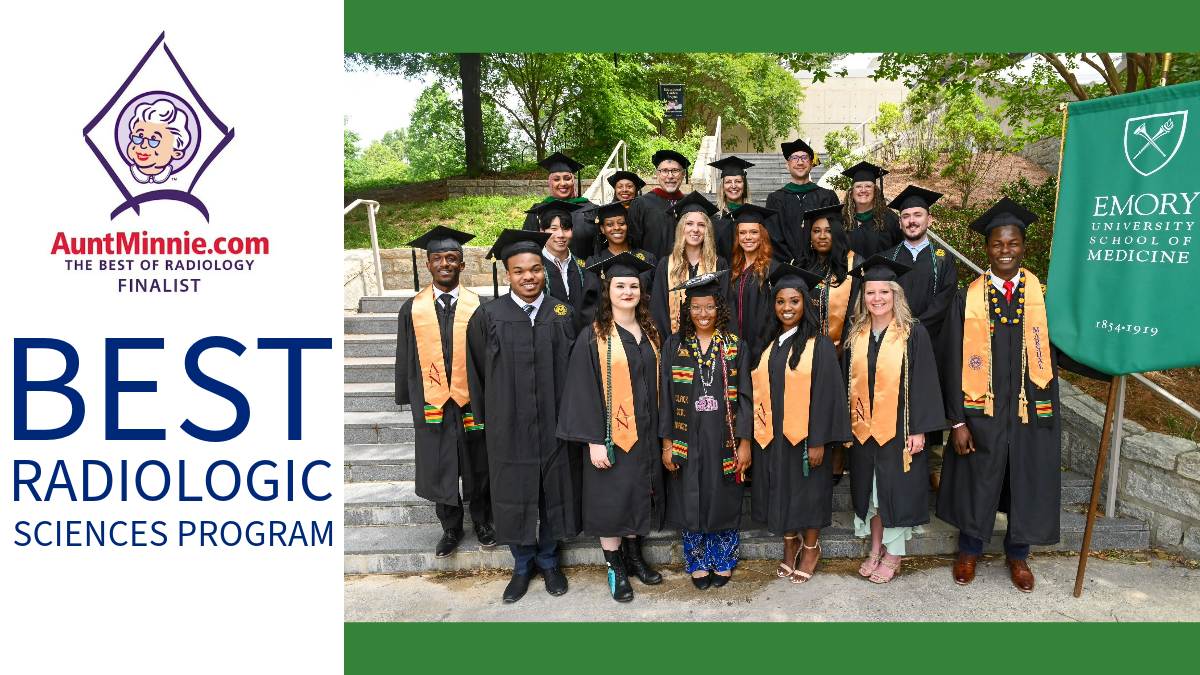
Contact Information
Additional information on applying for admission to these programs may be obtained by writing, phoning, or emailing as follows:
Medical Imaging Program
EUH Education Annex Building
531 Asbury Circle
Room N112
Atlanta, GA 30322
Mailstop: 1600-002-1AA
Phone: (404)-712-5005
E-mail: (Med.Imaging.Program@emoryhealthcare.org)


